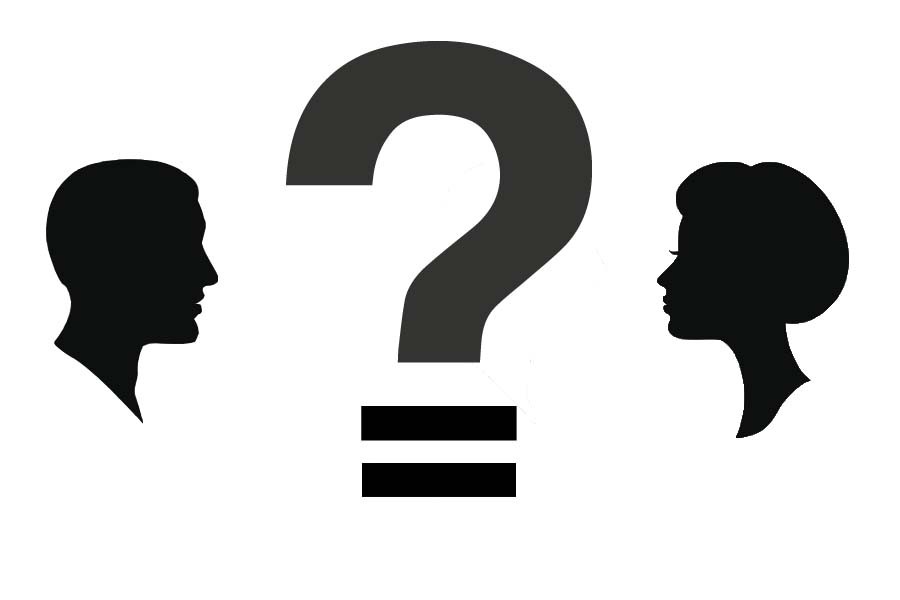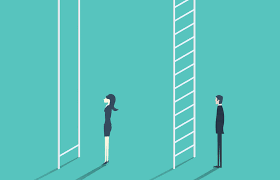Editorial: What’s Wrong With 21st Century Feminism?
December 16, 2015
No votes. No position of authority. No ownership of land. One hundred years ago women were classified as second class citizens, but today, women can run for the Office of the President. What got us here? Why did this all change?
Feminism is described as a political, moral, or cultural statement, it has different symbolic meaning for cultures everywhere; but is it still necessary today? The argument that feminism is no longer needed in society is because of the significant change of women’s rights today compared to one hundred years ago, but maybe it’s also more complicated than that.
Each person who claims the social label of “feminist” is different from the others, but some believe that this is a women’s race. Did you know that men can be active feminists too? In my experience, most people don’t usually even consider the fact that a man can be a woman’s rights advocate as well, but feminism isn’t just a woman’s game.
As most would agree, before signing yourself to a label like “feminist,” you should know some of the history beforehand.
What It Meant
One of the first big steps for women’s suffrage, or what became known as “feminism,” in the United States was in New York, on July 19 and 20, 1848. The Seneca Falls Convention, one of the first women’s rights conventions in the USA, saw an estimated 300 people came together to discuss women’s rights. The convention was inspired by events from the mid 1800’s, when American women delegates were denied their seats in an anti-slavery conference simply because of their gender.
It wasn’t until the mid to late 1900’s that both unmarried American and Western European women were allowed the right of owning property. Only after the 1920’s, were women encouraged to be in the workforce, and not until the 1960’s did women receive the opportunity to be paid a wage similar to a man’s.
While the world was at war, women were on the home front working in the factories and production lines. It wasn’t until after World War II that western women were given serious credit for the work they had done.
Women’s suffrage was almost seen as an act of rebellion, and they were hungry to be heard, and women knew their power began in the ballot box.
Today’s Issues
Now that women have the right to work, own property, and vote, why is feminism even needed? Some will argue that since there have been no American woman authority figures (like a president), women aren’t close enough to being equal.
Today Hillary Clinton is running for US president for the second time. Some think that in the name of equal rights, she should be put into office. But should you really vote for someone based on their gender? After all, isn’t it what’s on the inside that counts? Electing someone into office simply based on their gender is as ridiculous as buying a pencil that doesn’t take lead. A person can’t just look the part. She needs the skills. Some will vote for Hillary just because “it’s time for a woman to lead.” Others will never vote for her, no matter how qualified she is proven to be. Even the Office of President still struggles to find equal pay and job opportunity.
The social standards of the 21st century have men and women holding each other to standards that are nearly impossible to achieve. Society’s expectations of a person’s physical appearance go against all that is natural.
Women fight through different physical changes throughout puberty, as well as pregnancy and menopause, and find themselves quickly judged based on shape and size. Little has changed over thousands of years. Men have outrageous physical standards of being tall, dark, muscular, and handsome, but what if they’re not? Girls get to use make-up for any facial flaws to get a clearer complexion, but a guy commits social suicide to even consider the idea.
Men don’t go through as many physical changes as females, but they still suffer. What could men possibly go through that could even match the physical pain that a women faces? Emotional oppression. Men are historically viewed as the “protectors.” They must uphold a stone cold figure at all times. Psychological research proves that if you bottle up all of your emotions, they will later all come out at once in an explosion of anger. Men who cry in public are shamed for being weak and non-masculine. You can’t tell someone to give up their natural emotions and then expect them to treat you as a complete equal.
Often people will make the mistake of throwing a word like “feminism” around at whatever they can and seeing if it’ll stick. The problem with this is that if enough people start to do it, the label becomes useless and derogatory. Feminism has grown to be viewed negatively. People don’t even need a logical reason to attack someone with being a feminist. Today, women’s rights, or anyone’s rights, are so forced down others’ throats or thrown at others like fiery arrows that people are beginning to resent other’s natural rights.
Too often, when someone doubts a woman in any way, people who call themselves feminists are ready to attack at a moment’s notice. But feminism wasn’t promoted so women can attack others in the name of “equality.” It was, and still is, an idea to empower women to buy property, vote, and have some form of equality to men.
What It Means
Unfortunately, women are too often still seen as inferior to men in the 21st century. The problem with today’s women’s suffrage is that labels are quickly thrown around, making something that is a current issue seem weak and a form of bullying. The spirit of women’s suffrage has been lost in a storm of name-calling, resentment, and anger. Women everywhere still fight for the right to be viewed as an equal to a man, but the fight has changed. Nearly one hundred years ago the fight for women’s rights was completely different. It was about empowering women. Now, it seems, the fight for women’s rights has been reduced to limiting the rights of others. When this idea was first born, no one envisioned the fight lasting 150 years, but inequality still lurks on.







